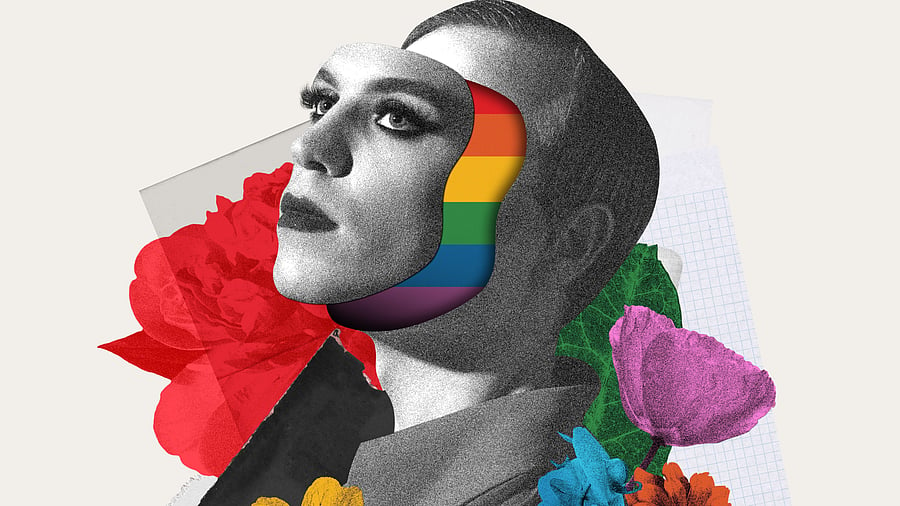
Image for representation,
Credit: iStock photo
It has been over six and a half years since the Supreme Court of India read down Section 377 of the Indian Penal Code and gave queer people in our country hope that prejudice and discrimination would come to an end following the decriminalisation of same-sex relationships.
In the judgement on Navtej Singh Johar vs Union of India, Justice Indu Malhotra wrote, “History owes an apology to the members of this community and their families, for the delay in providing redress for the ignominy and ostracism that they have suffered through the centuries. The members of this community were compelled to live a life full of fear of reprisal and persecution.” Unfortunately, the climate of fear and persecution continues.
A pride parade in Amritsar, scheduled for April 27, was cancelled by organisers Ridham Chadha and Ramit Sethi, citing safety concerns. This happened after Sikh leader Paramjit Singh Akali stated that such activities cannot be tolerated in the city where the most significant Sikh shrine, Harmandir Sahib — also known as the Golden Temple — is located. He threatened that, if the administration did not stop the event, Nihang Sikhs would do so on their own. Even Kuldeep Singh Gargaj, the current Jathedar of Sri Akal Takht, condemned the planned parade. Chadha and Sethi did not want to offend people’s religious sentiments. They also wanted to protect community members from violence.
While the cancellation is disappointing, we must refrain from painting an entire religious group as homophobic and instead amplify the work of queer people challenging hostility. Their voices and perspectives deserve to be heard widely. Sukhdeep Singh is a gay Sikh software engineer and activist whose documentary film Sab Rab De Bande (2020) sheds light on the experiences of five people who are proud of their Sikh heritage as well as their queer identity. They hail from Punjab, Haryana, Delhi, Uttar Pradesh and West Bengal. They take strength from teachings about equality and service that are to be found in the Guru Granth Sahib and stories told about the Sikh gurus.
Singh opens up about his experience of being told that he brings disrepute to his religion. Some Sikhs have gone to the extent of asking him to stop wearing the turban and cut his hair. Other individuals featured in the film speak about experiences of social ostracism and sexual violence. For all of them, faith serves as a strong spiritual anchor even as they navigate injustice. The title of his film is hard-hitting. It reminds viewers that Sikhism recognises the spark of divinity in all of God’s creations. Obviously, this means that queer Sikhs are included.
Harjant Gill, who grew up in India and now lives in the United States, is a visual anthropologist at Towson University. He, like Singh, is both Sikh and gay. In his film titled Milind Soman Made Me Gay (2007), he talks about his mother’s silence around the 1984 riots that led to the mass killing of Sikhs in India soon after the assassination of Prime Minister Indira Gandhi by her Sikh bodyguards. He also recalls how, as a closeted 15-year-old, his obsession with supermodel Milind Soman helped him escape his loneliness. Like Soman, who shed his clothes for the Tuff shoes advertisement, Gill appears nude in the film. He speaks about how Soman’s eyes, and indeed all of him, inflamed Gill’s desire.
Both films affirm that queer Sikhs exist, and that they are working to carve out their own place in the sun. Watching these films will make queer Sikhs who feel like misfits find a sense of belonging.
Those who seek to discourage queer Sikhs from taking up public space in the form of pride parades, for instance, must remember that the apex court’s judgement responsible that struck down Section 377 of the Indian Penal Code bears the name of Bharatanatyam dancer and yoga teacher Navtej Singh Johar. He is an out and proud gay man as well as a practising Sikh. Moreover, initiatives like Sarbat, the Queer Sikh Network, and the Sikh LGBTQIA+ Oral History Project provide a sense of homecoming and solidarity so that individuals do not feel isolated and despondent. They can connect with people in similar circumstances for mutual support. Sarbat, for example, describes itself as “a volunteer-led group addressing LGBT+ issues from a Sikh perspective”.
It is based in the United Kingdom but enjoys a global reach due to its digital presence. While the Sri Akal Takht’s official position opposes homosexuality and legal recognition of same-sex marriages, many queer Sikhs reject this view. Back in 2013, when the UK Parliament was working on a law establishing marriage equality, Sarbat put out a statement saying that “there is no reason why a committed Sikh couple should not be allowed to get married in a Gurudwara”. According to them, the Akal Takht’s unwillingness to recognise same-sex marriages is “based more on cultural and personal bias, and not rooted in Sikh values”.
In Sab Rab De Bande, Ekampreet, who is gay, asserts that in Sikhism, marriage is between souls rather than between a man and a woman. He believes that “souls are genderless”. The film also features Puneet, a lesbian woman who was once engaged to a man. Her family’s insistence on getting her married pushed her to come out. She met a Sikh woman on a dating website.
These stories show that queer Sikhs are here to stay — and others will have to make peace with that.
(The writer of this column is a journalist, educator and literary critic based in Mumbai.)